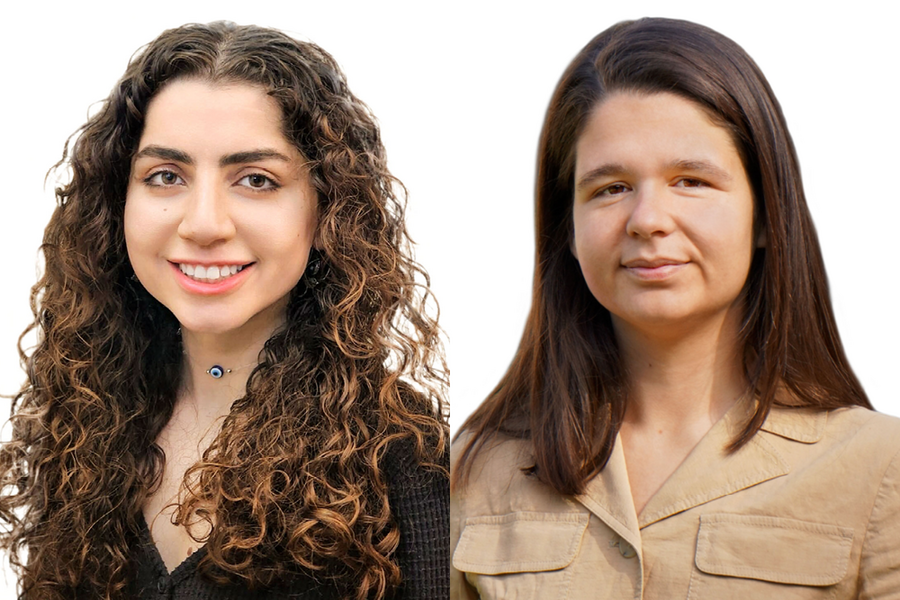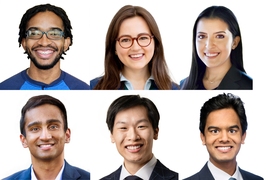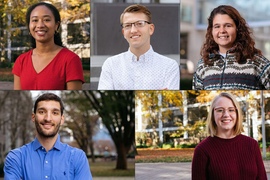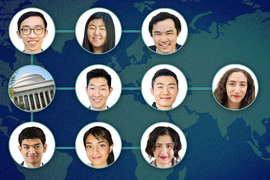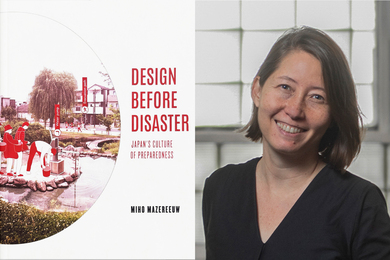MIT graduate student Riyam Al Msari and alumna Francisca Vasconcelos ’20 are among the 30 recipients of this year’s Paul and Daisy Soros Fellowships for New Americans. In addition, two Soros winners will begin PhD studies at MIT in the fall: Zijian (William) Niu in computational and systems biology and Russell Legate-Yang in economics.
The P.D. Soros Fellowships for New Americans program recognizes the potential of immigrants to make significant contributions to U.S. society, culture, and academia by providing $90,000 in graduate school financial support over two years.
Riyam Al Msari
Riyam Al Msari, born in Baghdad, Iraq, faced a turbulent childhood shaped by the 2003 war. At age 8, her life took a traumatic turn when her home was bombed in 2006, leading to her family's displacement to Iraqi Kurdistan. Despite experiencing educational and ethnic discriminatory challenges, Al Msari remained undeterred, wholeheartedly embracing her education.
Soon after her father immigrated to the United States to seek political asylum in 2016, Al Msari’s mother was diagnosed with head and neck cancer, leaving Al Msari, at just 18, as her mother’s primary caregiver. Despite her mother’s survival, Al Msari witnessed the limitations and collateral damage caused by standardized cancer therapies, which left her mother in a compromised state. This realization invigorated her determination to pioneer translational cancer-targeted therapies.
In 2018, when Al Msari was 20, she came to the United States and reunited with her father and the rest of her family, who arrived later with significant help from then-senator Kamala Harris’s office. Despite her Iraqi university credits not transferring, Al Msari persevered and continued her education at Houston Community College as a Louis Stokes Alliances for Minority Participation (LSAMP) scholar, and then graduated magna cum laude as a Regents Scholar from the University of California at San Diego’s bioengineering program, where she focused on lymphatic-preserving neoadjuvant immunotherapies for head and neck cancers.
As a PhD student in the MIT Department of Biological Engineering, Al Masri conducts research in the Irvine and Wittrup labs to employ engineering strategies for localized immune targeting of cancers. She aspires to establish a startup that bridges preclinical and clinical oncology research, specializing in the development of innovative protein and biomaterial-based translational cancer immunotherapies.
Francisca Vasconcelos ’20
In the early 1990s, Francisca Vasconcelos’s parents emigrated from Portugal to the United States in pursuit of world-class scientific research opportunities. Vasconcelos was born in Boston while her parents were PhD students at MIT and Harvard University. When she was 5, her family relocated to San Diego, when her parents began working at the University of California at San Diego.
Vasconcelos graduated from MIT in 2020 with a BS in electrical engineering, computer science, and physics. As an undergraduate, she performed substantial research involving machine learning and data analysis for quantum computers in the MIT Engineering Quantum Systems Group, under the guidance of Professor William Oliver. Drawing upon her teaching and research experience at MIT, Vasconcelos became the founding academic director of The Coding School nonprofit’s Qubit x Qubit initiative, where she taught thousands of students from different backgrounds about the fundamentals of quantum computation.
In 2020, Vasconcelos was awarded a Rhodes Scholarship to the University of Oxford, where she pursued an MSc in statistical sciences and an MSt in philosophy of physics. At Oxford, she performed substantial research on uncertainty quantification of machine learning models for medical imaging in the OxCSML group. She also played for Oxford’s Women’s Blues Football team.
Now a computer science PhD student and NSF Graduate Research Fellow at the University of California at Berkeley, Vasconcelos is a member of both the Berkeley Artificial Intelligence Research Lab and CS Theory Group. Her research interests lie at the intersection of quantum computation and machine learning. She is especially interested in developing efficient classical algorithms to learn about quantum systems, as well as quantum algorithms to improve simulations of quantum processes. In doing so, she hopes to find meaningful ways in which quantum computers can outperform classical computers.
The P.D. Soros Fellowship attracts more than 1,800 applicants annually. MIT students interested in applying may contact Kim Benard, associate dean of distinguished fellowships in Career Advising and Professional Development.
